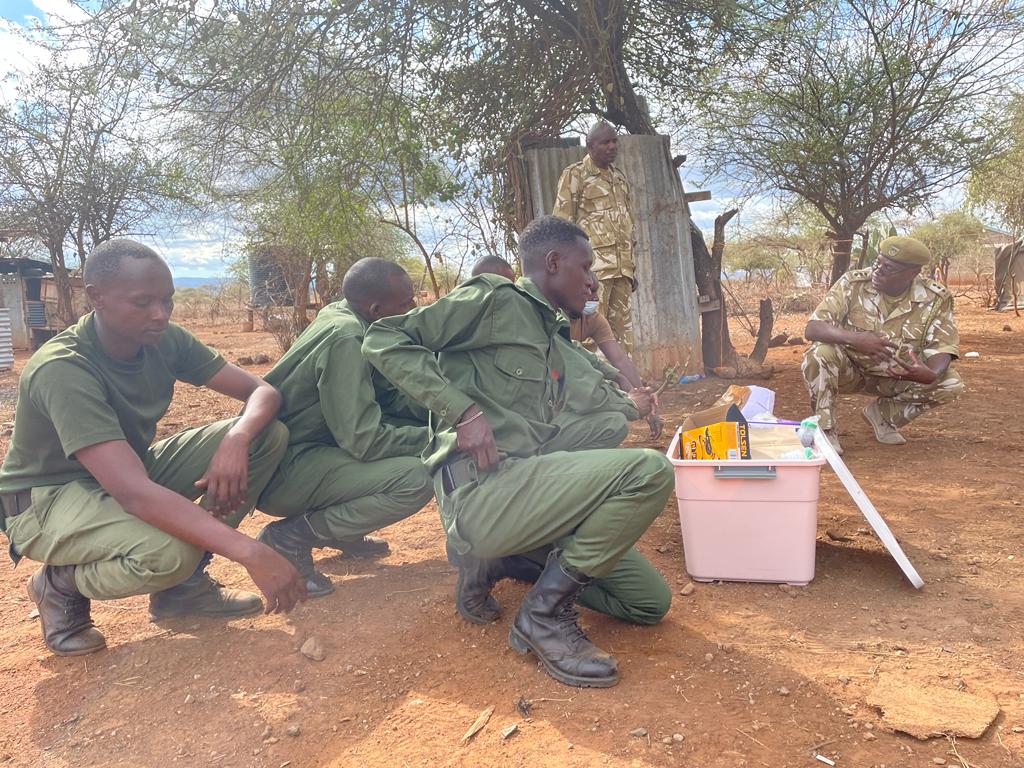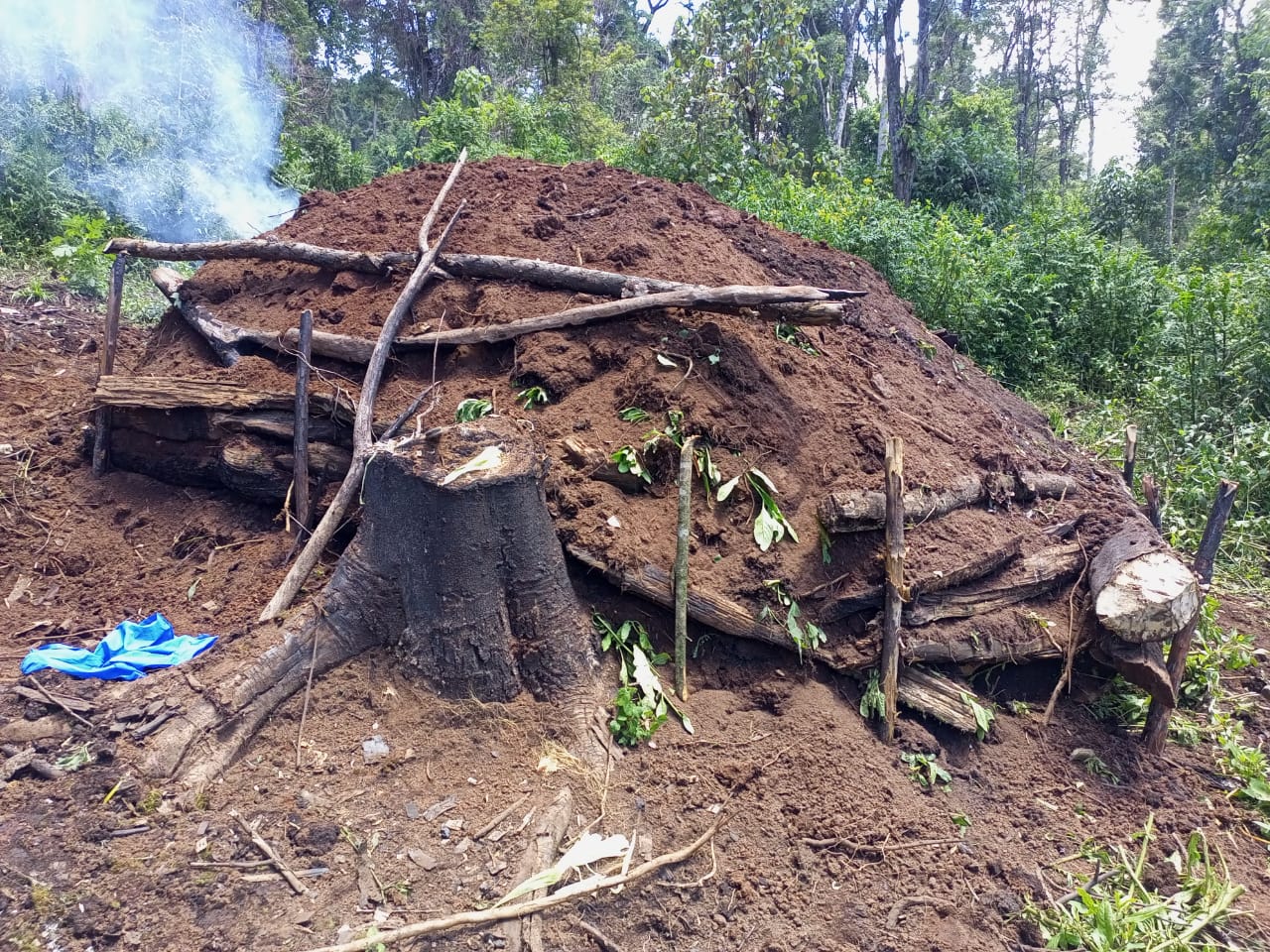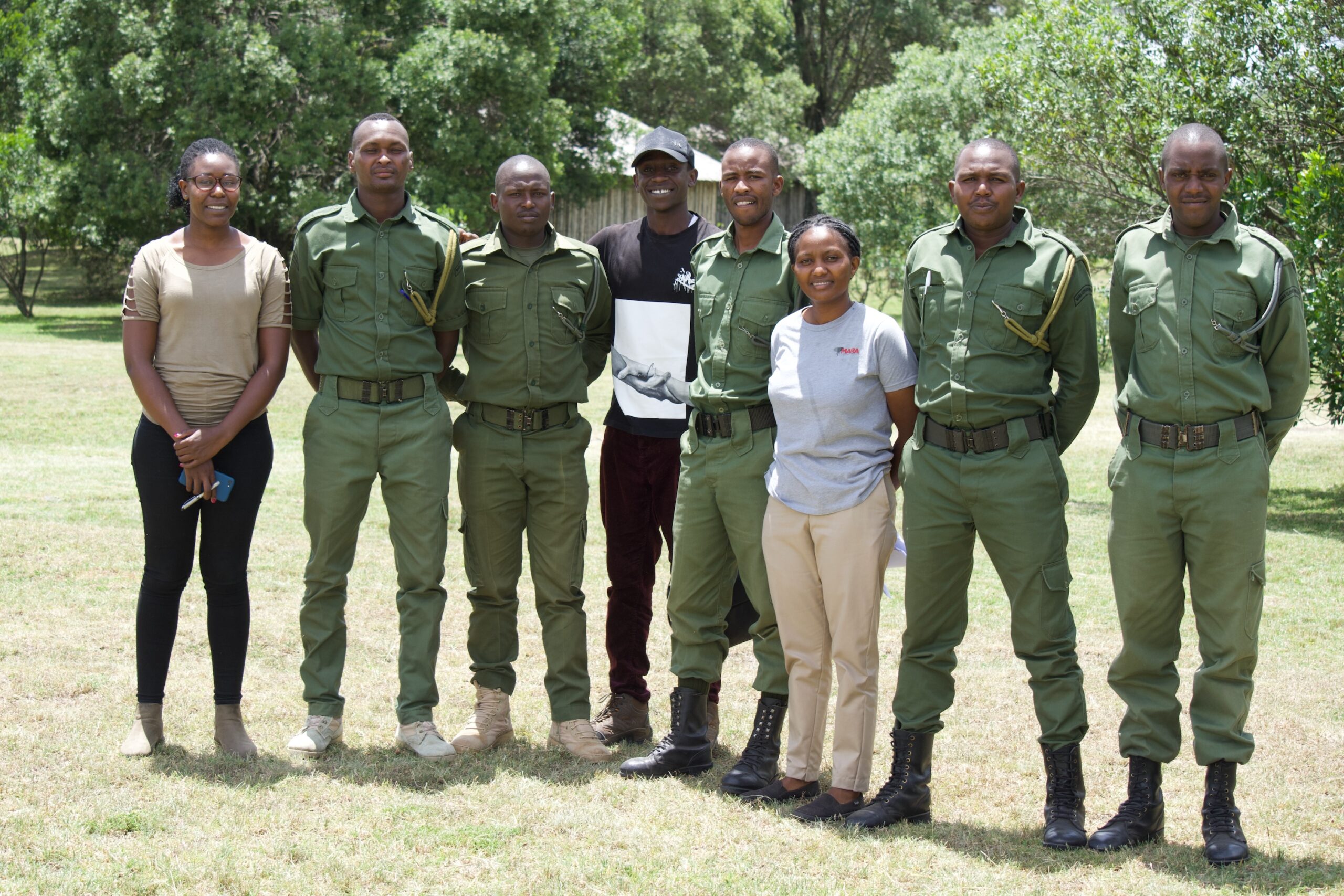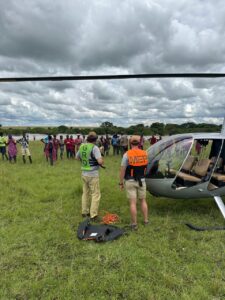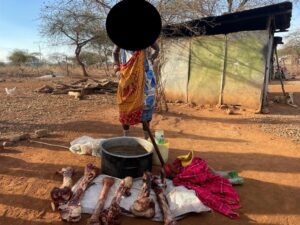 The Mara Elephant Project “Lima” ranger team based in Mosiro was deployed at the end of July and they’ve already made an impact by responding to conflict, monitoring elephants for injury, meeting with the community and recently a big bushmeat bust. They received a report from the community about a potential bushmeat poaching incident involving a giraffe. After following up on the tip, the MEP rangers laid in wait to ambush the suspect and arrested him in possession of 50 kg of bushmeat, which was indeed from a giraffe. They also attended an advanced training course organized by Kenya Wildlife Service (KWS) and the South Rift Association of Land Owners (SORALO). The training covered the basics on human rights, making arrests, law enforcement, and crime scene management. MEP is committed to providing opportunities for rangers to advance their knowledge base and skill set and we’re grateful to our partners for providing this training.
The Mara Elephant Project “Lima” ranger team based in Mosiro was deployed at the end of July and they’ve already made an impact by responding to conflict, monitoring elephants for injury, meeting with the community and recently a big bushmeat bust. They received a report from the community about a potential bushmeat poaching incident involving a giraffe. After following up on the tip, the MEP rangers laid in wait to ambush the suspect and arrested him in possession of 50 kg of bushmeat, which was indeed from a giraffe. They also attended an advanced training course organized by Kenya Wildlife Service (KWS) and the South Rift Association of Land Owners (SORALO). The training covered the basics on human rights, making arrests, law enforcement, and crime scene management. MEP is committed to providing opportunities for rangers to advance their knowledge base and skill set and we’re grateful to our partners for providing this training.
“As MEP rangers, we are very grateful to learn more about these essential skills. Most of what we have learnt is what we are practicing in the field and this training gave us advanced tactics to use when dealing with suspects and the management of crime scenes.”
MEP Ranger David Kaleke
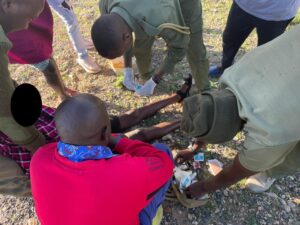 During a routine patrol in October, the MEP mobile ranger team encountered a motorbike accident with injury. The rangers took immediate action and administered first aid to the injured 23-year-old woman and transported her to a nearby clinic for further treatment. Also in October, The MEP mobile ranger team rapidly responded to a herd of ten elephants inside a fenced farming area. They left in a hurry once the MEP rangers intervened as fences do little to deter elephants from entering, or exiting, farms. The herd was moved back into the conservancy where it’s safe.
During a routine patrol in October, the MEP mobile ranger team encountered a motorbike accident with injury. The rangers took immediate action and administered first aid to the injured 23-year-old woman and transported her to a nearby clinic for further treatment. Also in October, The MEP mobile ranger team rapidly responded to a herd of ten elephants inside a fenced farming area. They left in a hurry once the MEP rangers intervened as fences do little to deter elephants from entering, or exiting, farms. The herd was moved back into the conservancy where it’s safe.
The MEP/Sheldrick Wildlife Trust (SWT) Mau De-Snaring Units alongside partners KWS, Kenya Forest Service and Bongo Surveillance Project continued their efforts to protect the Mau Forest and the wildlife that call it home.
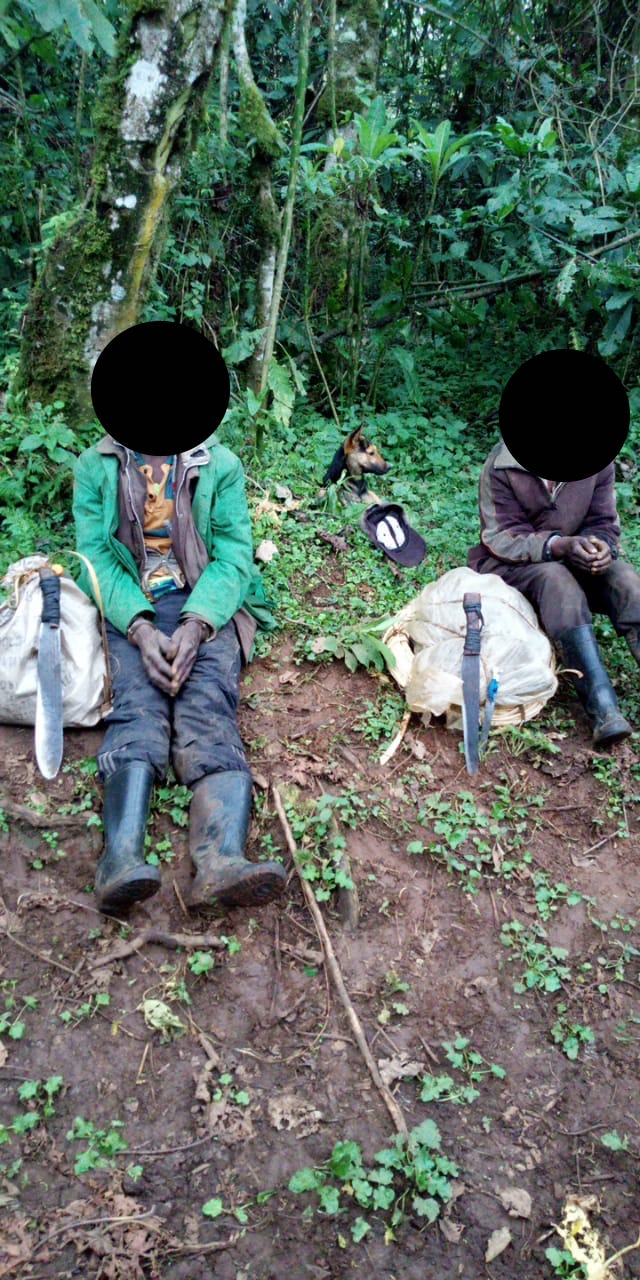
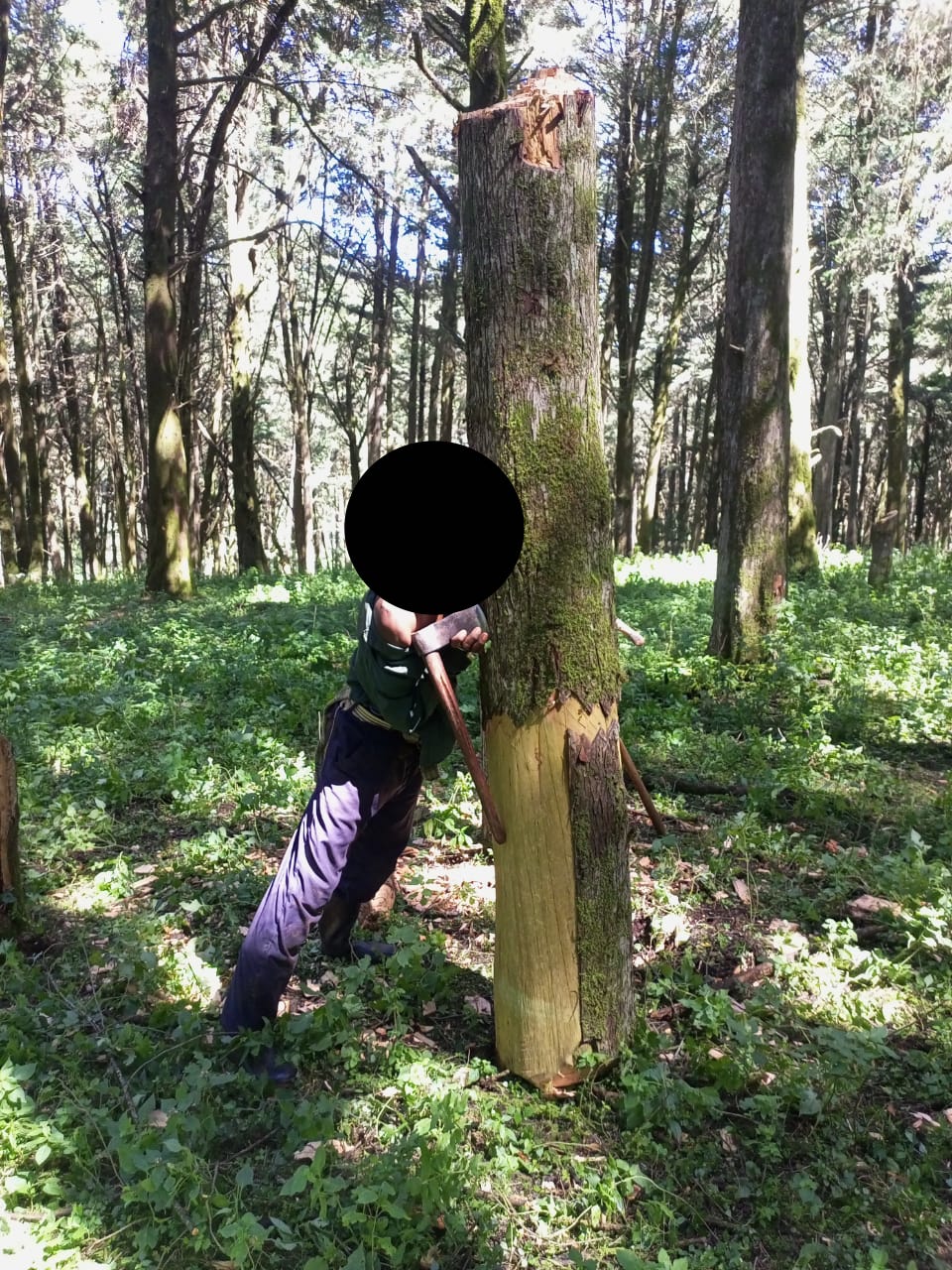
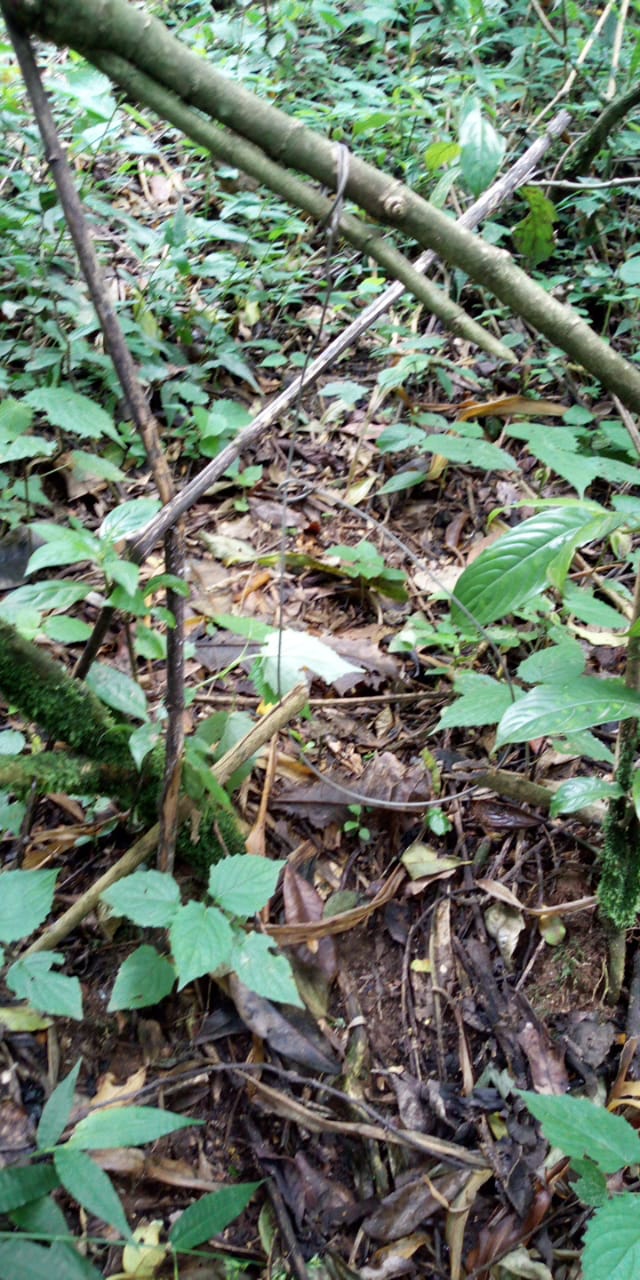
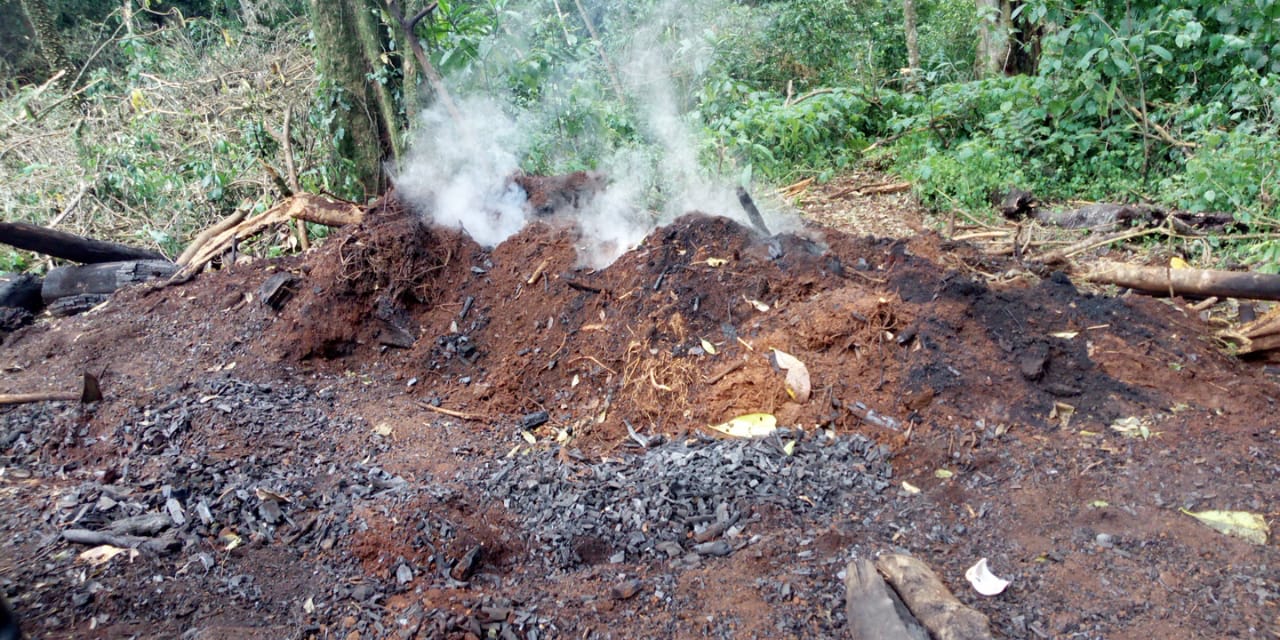
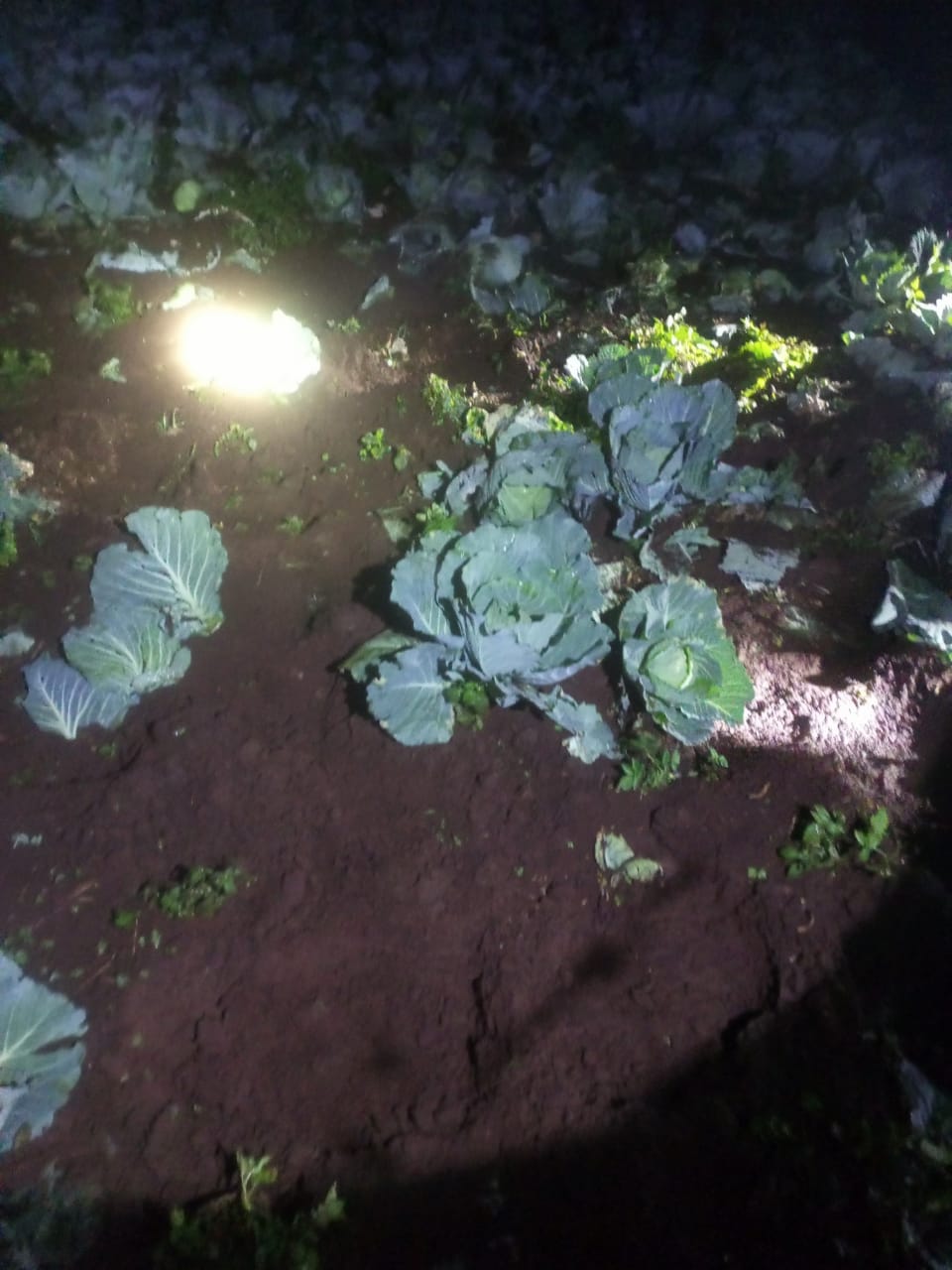
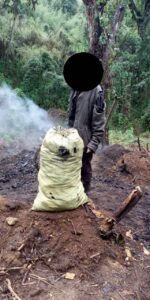 Overall, in October, MEP rangers alongside government partners arrested three bushmeat poaching suspects and 16 habitat destruction suspects. They confiscated 75 kg of bushmeat and removed 16 snares. They also confiscated 764 pieces of timber, 1,642 posts, the highest this year, destroyed 15 charcoal kilns and mitigated 31 conflict incidents. In October, MEP rangers covered a distance of 1,363.92 km on foot and 10,241.37 km by car in the GME.
Overall, in October, MEP rangers alongside government partners arrested three bushmeat poaching suspects and 16 habitat destruction suspects. They confiscated 75 kg of bushmeat and removed 16 snares. They also confiscated 764 pieces of timber, 1,642 posts, the highest this year, destroyed 15 charcoal kilns and mitigated 31 conflict incidents. In October, MEP rangers covered a distance of 1,363.92 km on foot and 10,241.37 km by car in the GME.
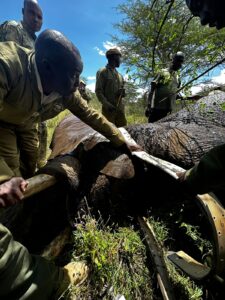 In October, collared elephant Ritan left the Sachangwan area which is at the north end of the Mau Forest and traveled over 90 kilometers as the crow flies to the border of the Lake Nakuru National Park. Ritan, a bull elephant, was collared by the Wildlife Research and Training Institute, KWS and MEP in June 2020 to better understand his movements and conflict. His movements in October presented a good opportunity to continue his monitoring by replacing his collar. MEP CEO Marc Goss offered aerial support with the MEP helicopter and moved Ritan into an open area where he joined our partners on the ground to deploy the new collar. Ritan is now back in the Mau Forest and his continued movement data will inform our response to conflict in the area and paint a more detailed picture of how elephants navigate the Mau.
In October, collared elephant Ritan left the Sachangwan area which is at the north end of the Mau Forest and traveled over 90 kilometers as the crow flies to the border of the Lake Nakuru National Park. Ritan, a bull elephant, was collared by the Wildlife Research and Training Institute, KWS and MEP in June 2020 to better understand his movements and conflict. His movements in October presented a good opportunity to continue his monitoring by replacing his collar. MEP CEO Marc Goss offered aerial support with the MEP helicopter and moved Ritan into an open area where he joined our partners on the ground to deploy the new collar. Ritan is now back in the Mau Forest and his continued movement data will inform our response to conflict in the area and paint a more detailed picture of how elephants navigate the Mau.
We’ve recently added to our aerial capacity with the deployment of drones. As noted above, October had a high number of conflict incidents and when MEP rangers responded using a drone there was a 90% mitigation success rate. Below highlights our rangers using a drone to push collared elephant Matali away from a settlement.
Drones have also been useful for monitoring elephants. In October, MEP rangers monitored elephants from the air to check for injuries.
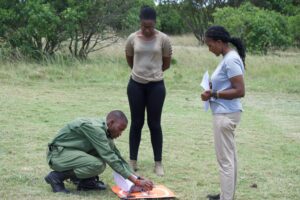 We also partnered with Expert Drones East Africa to offer advanced drone training to six MEP rangers at MEP HQ.
We also partnered with Expert Drones East Africa to offer advanced drone training to six MEP rangers at MEP HQ.
On the ground, MEP ranger teams monitored collared elephants Kiambi, Kegol, and Ivy in October.
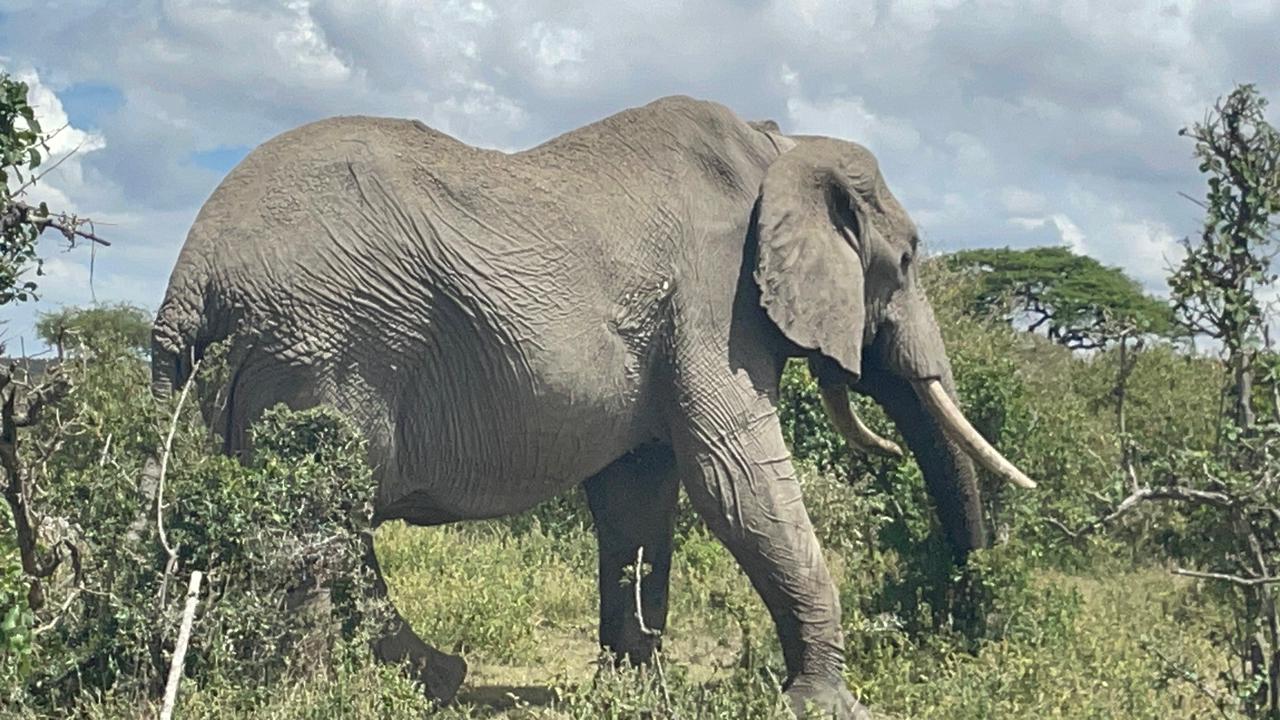
Kiambi
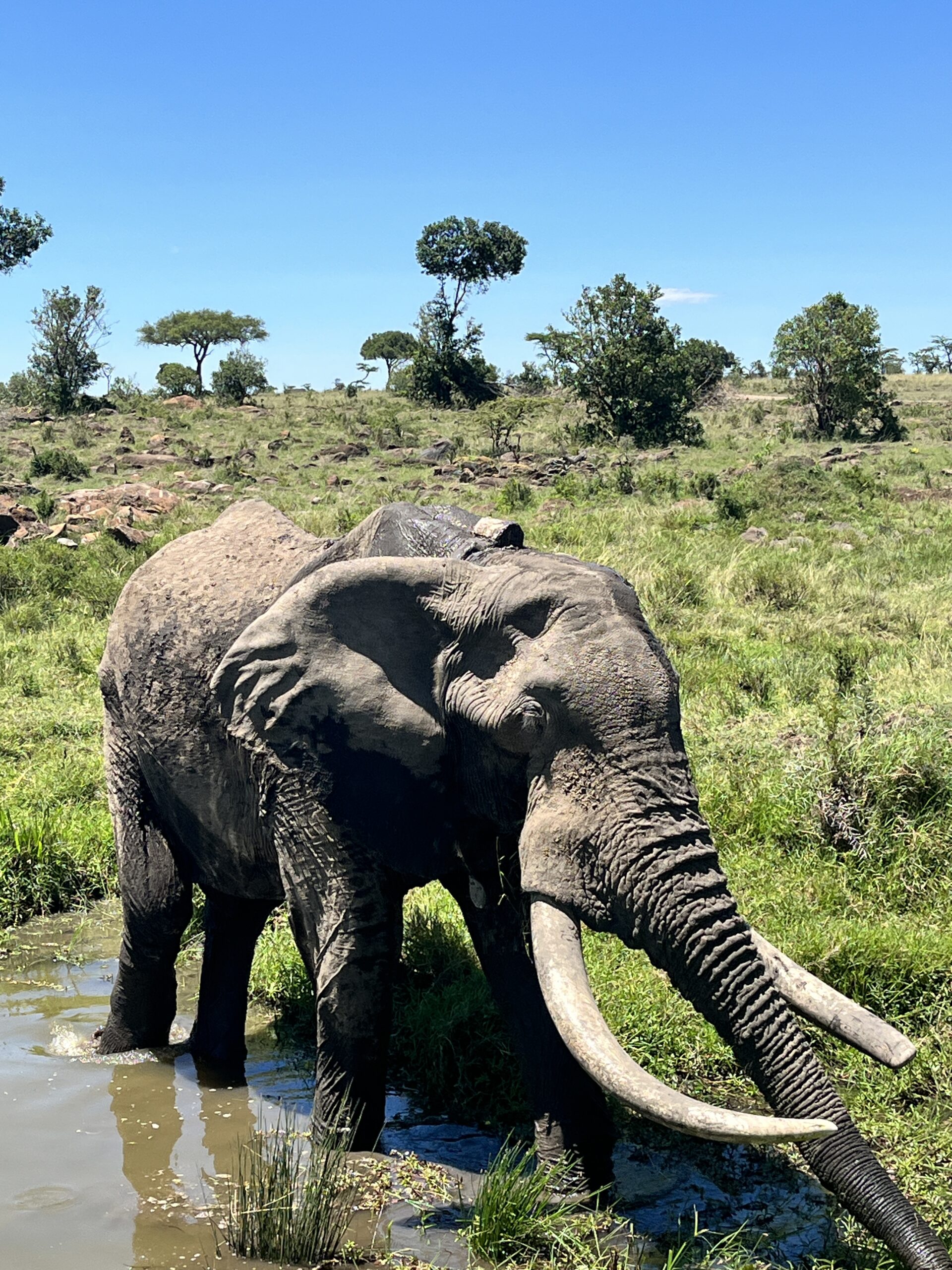
Kegol
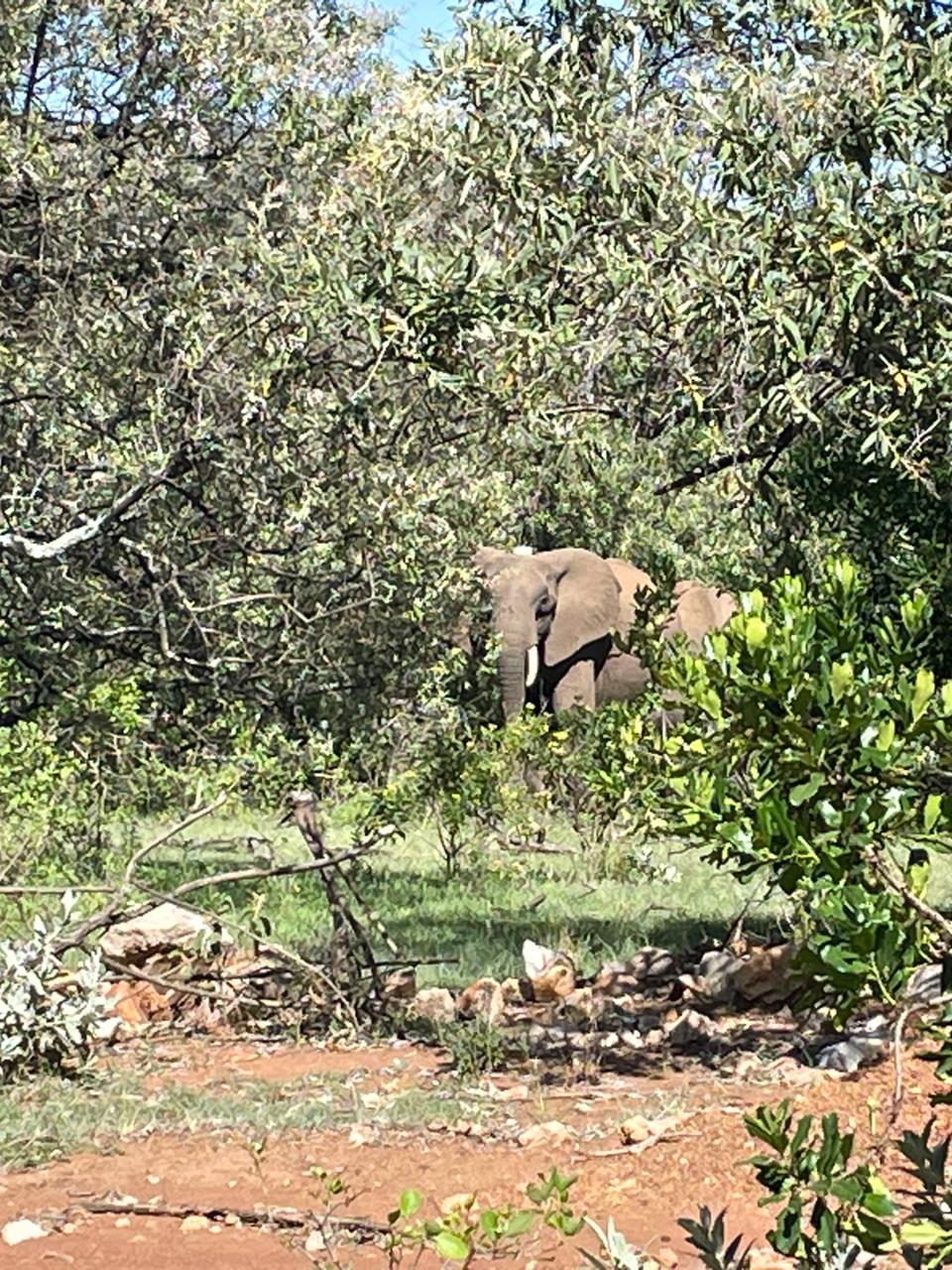
Ivy
The MEP Co-Existence Farm team participated in their last educational activity for 2023 by joining 40 students on World Habitat Day to discuss global green has emissions and plant trees.
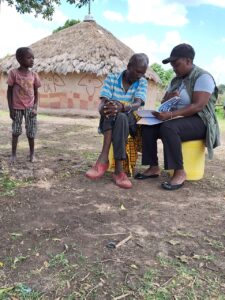 The farm team also started conducting the first of three social surveys within nearby communities with the aim of understanding people’s willingness to adapt to crops not palatable by wildlife. They also started an indigenous tree seedling nursery on the farm which will be used to grow trees to distribute for planting in degraded areas.
The farm team also started conducting the first of three social surveys within nearby communities with the aim of understanding people’s willingness to adapt to crops not palatable by wildlife. They also started an indigenous tree seedling nursery on the farm which will be used to grow trees to distribute for planting in degraded areas.
There were 40 entries that supported MEP in the last month of The Greatest Maasai Mara photo competition for 2023. We’re excited to see who is crowned the top photographer of the year.




 Finally, our own Image Ambassador Jeffrey Wu was in the Mara in October and captured stunning images of a female elephant, individual 826, as identified in ElephantBook.
Finally, our own Image Ambassador Jeffrey Wu was in the Mara in October and captured stunning images of a female elephant, individual 826, as identified in ElephantBook.
